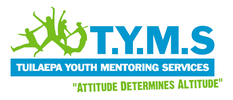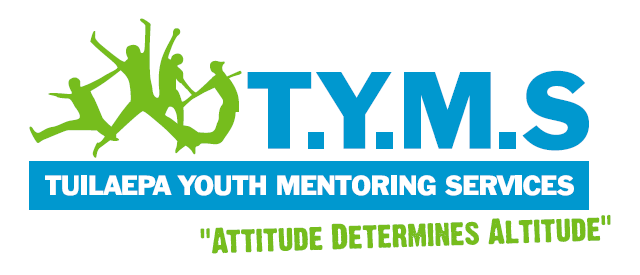|
Author: Koleta Savaii In the media last week, MOE released its review of the Alternative Education sector. In a nutshell, the review concluded that the alternative education has been “largely ineffective”, with suggestions for “a stronger move to help schools keep the most at-risk teens in mainstream classes”.
‘Keeping at-risk young people in school' is exactly what TYMS have been doing since its inception, and we have seen tremendous successes. The results of our 2016 Evaluations Outcomes Harvest revealed that of our total 183 clients, 73% remained in school, 9% returned to school after being excluded, and 2% transitioned into Alternative Education. While we are pleased with these results, our insights and key learnings over the many years of working with our young people and their whānau have taught us that the suggestion to ‘keep at risk youth in mainstream classes’ is not as simple as it sounds for all involved. I had the privilege of catching up with two of my close friends from my undergrad and postgrad tutoring years last Saturday for brunch. Since our tutoring years, one friend is now an Academic and Careers advisor at a South Auckland high school, and the other is a lecturer in one of the University's Certificate Programmes. We reminisced about our tutoring days and the challenges we faced, especially with students who were ill-prepared for university. My lecturer friend told us that not much has changed, "but do you know what, my students are trying. I've listened to their stories… The challenges they face to get to class are overwhelming". My Careers Advisor friend nodded in agreement, telling us similar stories from her own students and the role she plays in ensuring this gap between High School and University is bridged. It was then my turn to share my work stories, and when I did, it surprised us all that while we are at different stages of the Education system, we all shared the same challenges. If the issue is not properly addressed in the early years, it continues into high school and eventually into university. Alternatively, young people are excluded from school which is detrimental to their chances at a good life, however this is defined. So, what exactly is happening at my end of the spectrum? Young Sione was referred to TYMS last year by his school because he was at high risk of exclusion. The reasons noted in his referral included: a lack of focus, impulsivity, causing class disruption, easily angered, absconding, and poor academic achievement. Sione is a 15-year-old male of Samoan, Maori, and European descent. Sione lives with his single mother Jane and younger brother Tui. Sione’s grandfather passed away when he was 3 years old, and his loss deeply affected Sione as his papa was his only friend and father-figure. Jane also struggled with her father’s loss, especially as he was her ‘rock’ - her main source of stability both financially and emotionally. With her father gone, Jane was forced to restart on her own. For 10 years they moved from home to home, whatever was affordable with the income she received from her benefit. Sione’s father was not in the picture, so there was no source of parental support from him financially and emotionally to assist with Sione's care. When I spoke with Jane, she acknowledged with sadness the impact their constant moving had on Sione - his education was disrupted, he was unable to make long-term friends, and the neighbourhoods they lived in were no place to raise a young child. “But what else can you do when rent is expensive, and when all the bills are paid you are left with an average of $40 per week to allocate to food and other expenses?”, Jane said. “I always prayed that my son didn't get sick because if he did, I wouldn't know how to give him the healthcare he would need”. Jane also admitted to the many times she would change the name on her power bill just to get by. She also humorously referred to herself as a ‘regular’ at WINZ and Housing NZ. For Jane, the main priority at the time was to get a Housing NZ home for her and Sione so that Sione could go to one school and make friends. But Sione was also growing up quickly, and while she was fighting to survive, her son was slowly falling through the cracks. He was disengaged from school and from her. His teachers identified him as a ‘problem student’. And the police often dropped him home after midnight. When Jane finally found a Housing NZ home, she said “it was already too late, my son was too far gone into the deep end hanging with the wrong crowds and getting into trouble”. Jane was tearful as she recounted the day she got the call from Housing NZ that they had a home for her. She was sitting at the WINZ reception waiting for another appointment. While she waited, she contemplated the possibility of giving her sons to CYFS care (Tui was 1 year old at the time). In her mind, she had done everything she could but despite all her efforts, her sons were suffering. She did not want that life for them. Perhaps the system could provide her sons with the good life she was unable to provide. Fortunately for Jane, the call and solution to some of her problems had arrived on time, and she moved with into their new home with her sons within a week. For Sione on the other hand, his performance at school had deteriorated, which resulted in his involvement with TYMS. With the help of his TYMS Mentor and TYMS Family Advocate, Sione remained in school and is still there to this day. Our TYMS team worked with Sione and his mother, building Sione's executive function skills, addressing the risk factors in his environment, and adding the protective factors necessary to strengthen his resilience. In my conversation with Jane, she expressed immense gratitude for TYMS help with her son, especially his Sai Bhai mentor who, “never gave up" on Sione. Seeing her son’s positive progress every time he returned home from his day with his mentor also empowered Jane to do better for herself and her sons. Jane is now in her last semester of her university degree. We have all encountered Sione’s in our lives, except the only things we are often told about these Sione’s are the statistics and stereotypes associated with the language he is labelled by: 'problem student’ or ‘at-risk teen’. We are rarely told Sione’s story. We are also not told that young people like Sione who experience four or more risk factors in their lives are highly vulnerable and at high risk of experiencing toxic stress. Toxic stress, amongst its other negative impacts, robs young people of their executive function skills, the very skills that are crucial to young people's academic and social success. We continue to work with many young Sione’s on an individual basis and in groups. We have an in-school healthy relationships group mentoring programme that directly addresses MOE’s goal of 'keeping at-risk youth in mainstream classes'. This 8-week program is currently running in various primary schools across West Auckland, with schools out South Auckland on the waiting list for next term. We also run an education and pastoral care program in a Youth Justice Residential Home for young on remand. Both programs are gaining nation-wide attention for the positive outcomes experienced by our young people, their whānau, and schools. What have we learned? Combining the insights from my two friends work experiences with our TYMS learnings from over 5 years of working with young people who are at-risk of being excluded, or are already excluded from schools, we understand the following:
When our young people and their whānau come to TYMS, we first exchange stories to foster the trust and empathy that is needed to establish the relationships that enable us to do the work we do successfully. When we listen to young people's stories, they cease to become ‘just another number’ or ‘another statistic’; instead, they become our child, our young person, our whānau, our neighbour, our people.
Regardless of our job descriptions and where we are in our careers, as adults, we each have a role in the wellbeing and future success of our young people. 'A manuia fanau, e manuia aiga, nuu, Ekalesia, ma le atunuu - When our children are successful, our families, villages, churches, and nation all prosper'. It takes a village to raise a child. * Jane and Sione have kindly given their permission for us to tell their story.
0 Comments
|
Categories
All
Archives
June 2018
|
What Our Clients Are Saying
|
Contact Us |

 RSS Feed
RSS Feed
